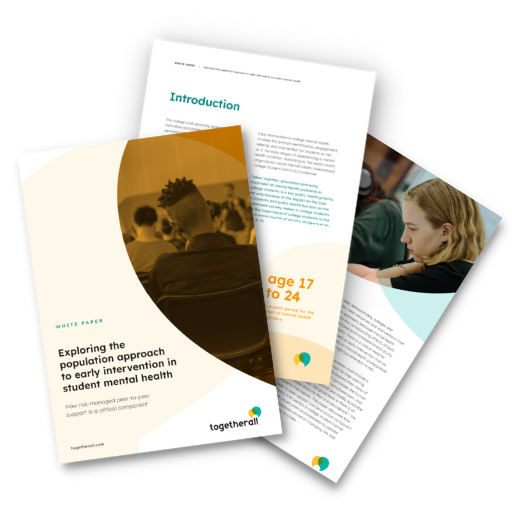

Former Counseling Center Director, Dean of Students and Psychologist James Lyda, Ph.D. discusses early intervention resources and how they leverage peer-to-peer support to normalize help-seeking behavior, particularly among college students ages 17-24 who are in transition to early adulthood.
This age demographic is a peak period for the onset of mental health disorders, so early intervention is critical to public health and the future of society.

Early intervention for mental health disorders is critical to empower college students to reach their academic learning potential.
Dr. Lyda explains there’s strong evidence of long‐term adverse effects of mental health disorders during the college years on functioning in the labor market.
Peer-to-peer mental health support can:
• Be a critical component to any college and university’s approach to early intervention
• Normalize and reduce barriers to help-seeking at a community level
• Foster a prosocial environment